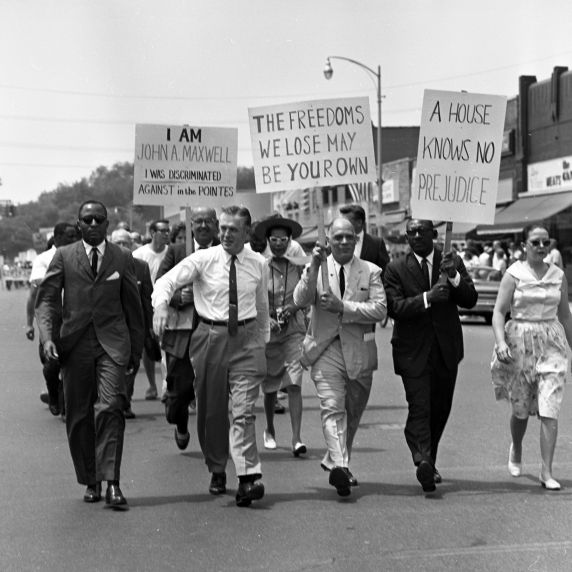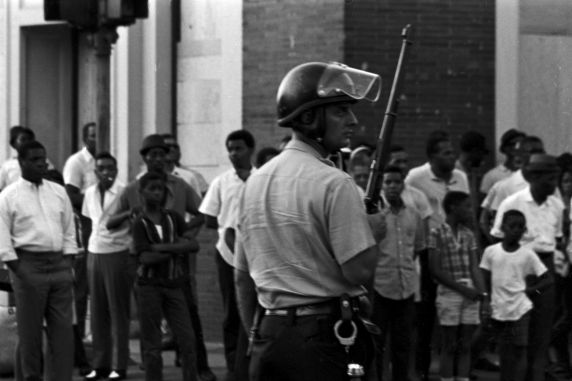Dr. Say Burgin explains that contrary to the common belief that white activists were purged from the Black freedom movement in the mid-1960 and 1970s, Black-led organizations in Detroit – including the Northern Student Movement, the City-Wide Citizens Action Committee, and the League of Revolutionary Workers—called on white activists to organize within their own white networks to support Black self-determination in education, policing, employment, and labor unions. Burgin is an assistant professor of history at Dickinson College and author of Organizing Your Own: The White Fight for Black Power in Detroit.
Related Resources:
Organizing Your Own: The White Fight for Black Power in Detroit
Related Collections:
Mike Hamlin and Joann Castle Papers (LP001946)
Kenneth V. and Sheila M. Cockrel Papers (UP001379)
George Crockett Papers (UP000276)
Detroit Industrial Mission Records (LR000131)
Ernest Goodman Papers (UP001152)
New Detroit, Inc. Records (UR000660)
Rosa L. Parks Papers
Episode Credits
Interviewee: Say Burgin
Producers: Dan Golodner and Troy Eller English
Music: Bart Bealmear
Podcast: Play in new window | Download | Embed
Subscribe: Apple Podcasts | RSS | More



